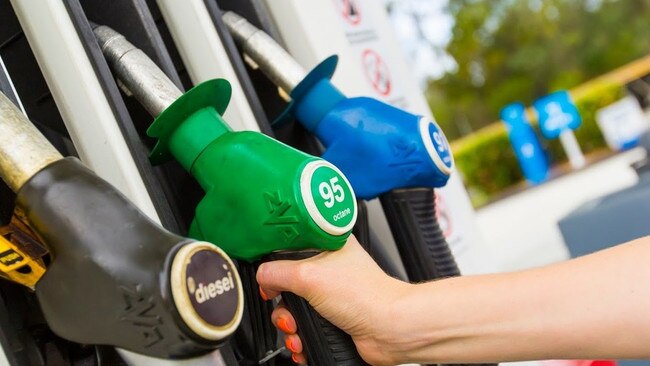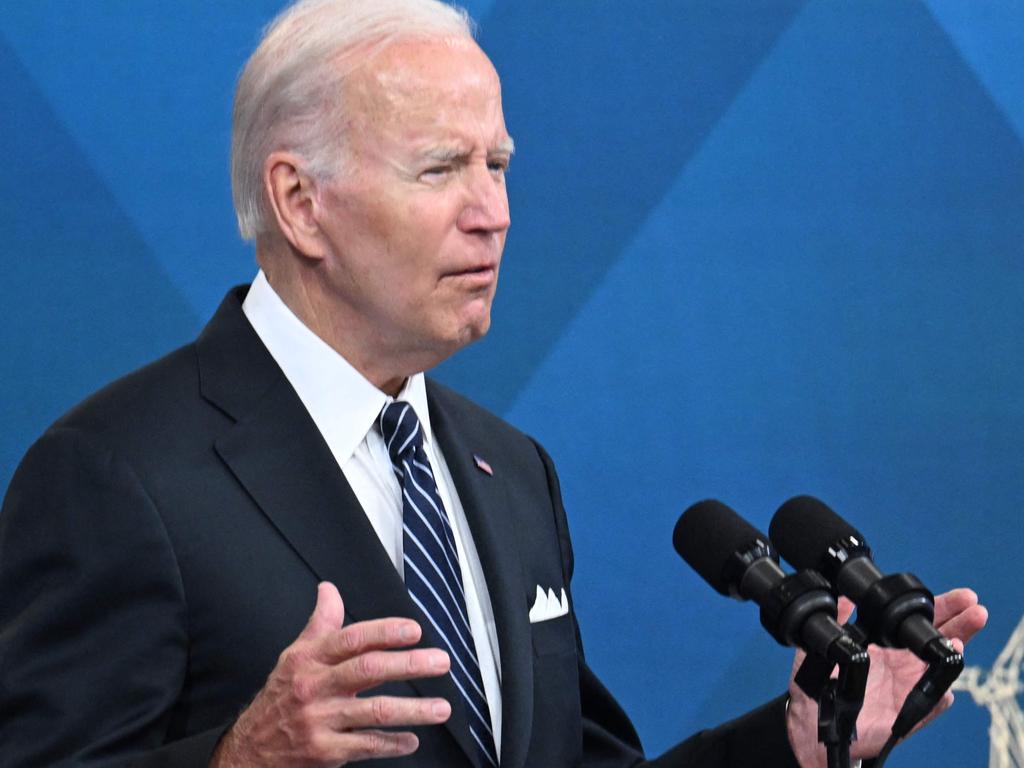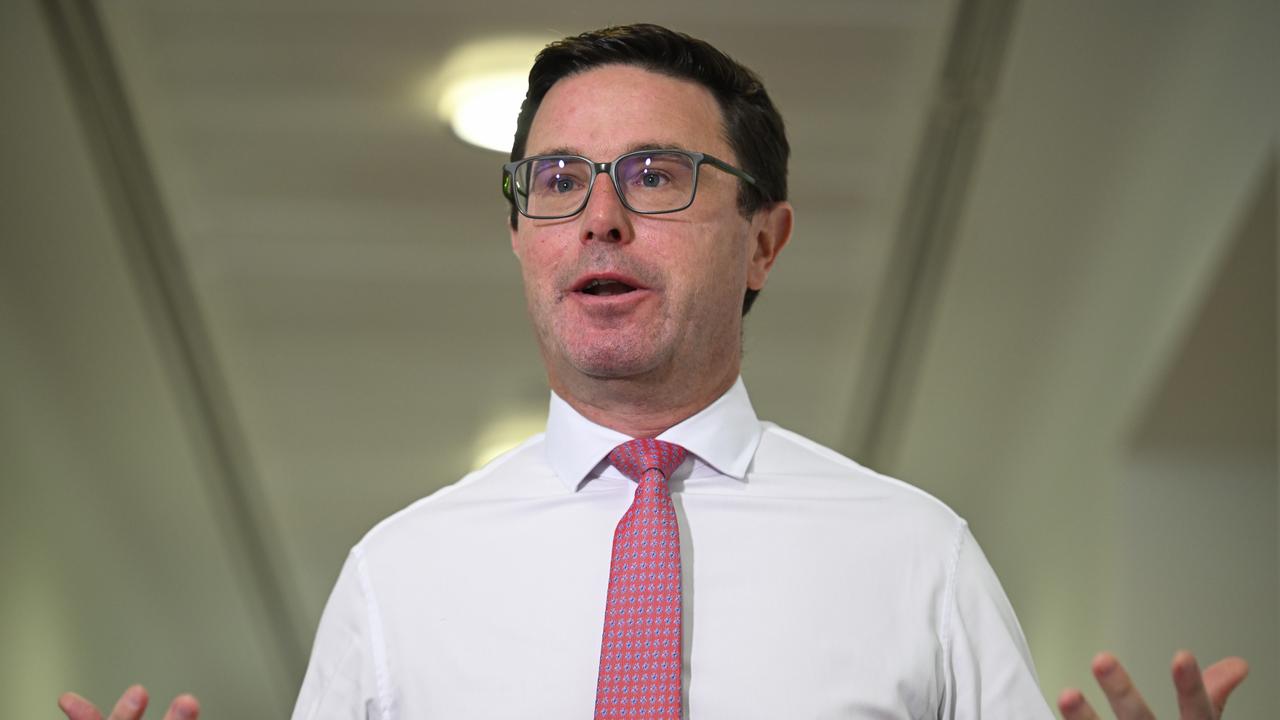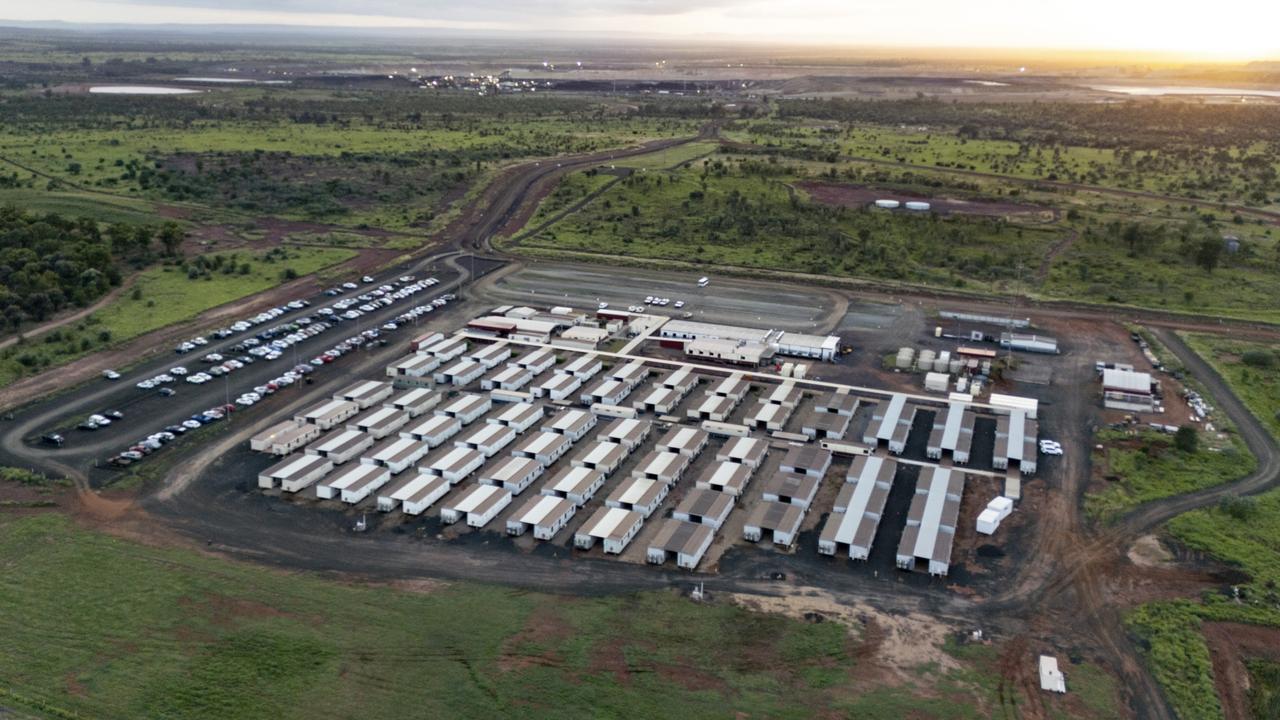Treasurer Jim Chalmers puts oil price heat on service stations
Jim Chalmers has called on fuel companies and service stations to ‘do the right thing by Australians’ and pass on savings from falling oil prices.

Jim Chalmers has called on fuel companies and service stations to “do the right thing by Australians” and pass on savings from falling oil prices, amid warnings of price gouging in small capital cities and the diesel market.
The price of oil has dropped by a quarter since the beginning of winter, and slowing global economic growth is expected to put the brakes on demand.
Brent oil, the international benchmark, has fallen to $US95 ($136) a barrel from $US125 at the start of June as prices retreat to levels last seen in February when Russia invaded Ukraine.
The Treasurer said this was “really welcome news” but only if savings were passed on quickly.
The national average petrol price fell to 173.6c a litre on Sunday, a price not seen since Easter.
“It’s encouraging to see prices starting to drop in many places across the country recently, and credit to the operators who are doing the right thing by their customers,” Dr Chalmers told The Australian.
“I think people get really filthy when the price goes up internationally and they see it get passed on quick smart, but when the price goes down internationally, sometimes it takes too long for those savings to be passed on to consumers.
“I urge servos and fuel companies to do the right thing by Australians, and the ACCC are always watching.”
It comes a week after Dr Chalmers demanded major banks “give their customers a fair go” and questioned why interest rate increases weren’t being passed on as quickly for savings as they were for mortgages.
Average petrol prices in Perth, Brisbane, Melbourne and Sydney are around $1.60 to $1.67. Economists and motoring experts expect price falls will continue, helping to lessen the impact of the fuel excise cut ending next month.
Ian Jeffreys, principal economic and affordability specialist at the Royal Automobile Club of Queensland, was concerned by high retail margins in the diesel market, which he said should be 10c to 20c lower than they were.
Unleaded petrol prices in the smaller capital cities were also higher than they should be.
“Darwin and Canberra stand out. Given the current wholesale price, we’d expect prices to be $1.75 at the moment whereas the Canberra average was 195.7c on Sunday,” Dr Jeffreys said.
Russia’s “full-scale invasion” of Ukraine on February 24 sparked a big rally in a string of commodities including oil, coal and LNG, but prices have eased as Russia continues to ship supplies into Asia and particularly China, the world’s top buyer.
Fears of a global recession also continue to mount, with traders worried an economic downturn will crunch oil demand as consumers cut down on driving amid a broader spending pullback.
Peter Dutton and a growing number of Coalition MPs have challenged Labor’s decision to keep the Morrison government’s end date to the six-month fuel excise cut, which was legislated to be September 28.
Economist Chris Richardson said the natural fall in global oil prices would help reduce petrol prices when the government assistance ends, but it was too early to say whether Australians could expect to pay under $2 per litre at that time.
“Australians famously leave everything until the last moment – such as Christmas shopping – so let’s just say don’t put off filling up until the day before the tax comes back because the queues will be enormous,” Mr Richardson said.
Noting the increased costs of petrol, transport, mortgage payments and groceries, the Opposition Leader on Monday said Anthony Albanese and his government had “failed to deliver any plan at all to reduce these cost-of-living pressures”.
“One thing we should all expect is that any reduction in the price of oil should flow through to customers at the bowser just as quickly as prices rise,” Mr Dutton said.
Additional reporting: Perry Williams







To join the conversation, please log in. Don't have an account? Register
Join the conversation, you are commenting as Logout